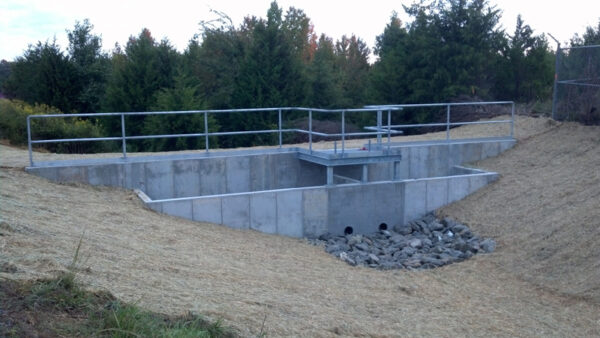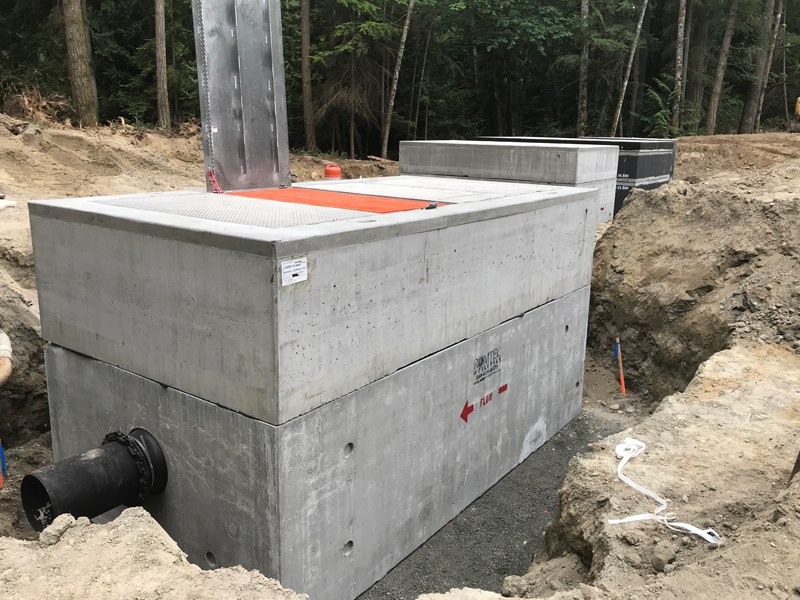Used U-Haul Pickup Trucks For Sale: Your Comprehensive Guide to a Reliable Workhorse pickup.truckstrend.com
In the vast landscape of pre-owned vehicles, a unique and often overlooked segment exists: used U-Haul pickup trucks. These are not your typical privately owned vehicles; they are the retired workhorses from one of the largest and most recognizable rental fleets in North America. For individuals and businesses alike seeking an affordable, reliable, and battle-tested pickup, a used U-Haul truck presents a compelling opportunity. This comprehensive guide will delve into every aspect of acquiring one of these distinct vehicles, from understanding their unique advantages to navigating the buying process, ensuring you make an informed decision.
Why Consider a Used U-Haul Pickup? The Unique Advantages
Used U-Haul Pickup Trucks For Sale: Your Comprehensive Guide to a Reliable Workhorse
The prospect of purchasing a vehicle that has been used by countless renters might initially give some buyers pause. However, it’s precisely this fleet background that imbues used U-Haul pickups with several compelling advantages, setting them apart from other pre-owned options:
- Exceptional Cost-Effectiveness: This is arguably the biggest draw. Used U-Haul trucks are significantly more affordable than comparable models of similar age and mileage found on the open market. Their utilitarian nature and high mileage often translate into a lower sticker price, offering immense value.
- Known Maintenance History & Fleet Maintenance: Unlike many private sales where maintenance records are spotty or non-existent, U-Haul operates a rigorous, scheduled maintenance program. Their trucks are serviced regularly by professional mechanics, often exceeding the care a private owner might provide. This means vital components like fluids, brakes, and tires are routinely inspected and replaced.
- Standardized Models & Easy Parts Availability: U-Haul predominantly uses popular, mass-produced truck models, most notably various generations of the Ford F-150. This standardization ensures that parts are readily available and mechanics across the country are familiar with their repair and maintenance.
- Work-Ready Features: These trucks are built for utility. Many come equipped with practical features like tow hitches, bed liners, and heavy-duty suspension components, ready to tackle tasks without requiring immediate upgrades.
- Depreciation Advantage: The steepest curve of depreciation has already occurred. By purchasing a used U-Haul, you’re investing in a vehicle that has already absorbed most of its initial value loss, offering better resale potential down the line compared to buying new.
- Proven Durability: These trucks have endured constant use and varied driving conditions, proving their inherent robustness. While cosmetic wear is common, their core mechanical integrity is often sound due to the fleet’s maintenance protocols.

What Types of U-Haul Pickups Are Available?
While U-Haul’s fleet is diverse, their pickup truck offerings typically revolve around a few core models, primarily chosen for their reliability, widespread parts availability, and robust performance.
The most common model you’ll encounter is the Ford F-150. U-Haul utilizes various generations of this iconic truck, ranging from older models to more recent ones as they cycle out their fleet. You might find:
- Cab Types: Regular Cab (single row of seats) and SuperCab (extended cab with small rear doors and jump seats). True crew cab models are less common in their rental fleet.
- Bed Lengths: Typically 6.5-foot (standard) or 8-foot (long bed), designed for maximizing cargo capacity.
- Engine Types: Common engines include the Ford 3.7L V6, 3.5L EcoBoost V6, 2.7L EcoBoost V6, and the venerable 5.0L V8. These engines are known for their balance of power, efficiency (for their class), and durability.
- Drivetrain: The vast majority of U-Haul pickups are 2-wheel drive (2WD), optimized for fuel efficiency and general hauling on paved roads. While 4WD models might occasionally appear, they are rare exceptions.


Occasionally, you might also find a limited number of General Motors (GMC Sierra or Chevrolet Silverado) or Ram pickups, but the Ford F-150 remains the dominant choice due to U-Haul’s long-standing relationship with Ford. It’s important to remember that inventory is constantly changing, so what’s available today may not be tomorrow.
Where to Find Used U-Haul Pickup Trucks for Sale
The most reliable and recommended source for purchasing a used U-Haul pickup truck is directly from U-Haul itself. They operate a dedicated sales division to offload their retired fleet vehicles.
- U-Haul Truck Sales (Uhaul.com/trucksales): This is your primary destination. U-Haul maintains an extensive online inventory where you can search for trucks by location, make, model, year, and price. They provide detailed listings, often including multiple photos, vehicle specifications, and sometimes even a basic vehicle history. Buying directly from U-Haul offers transparency and the peace of mind that you’re dealing with the original fleet owner.
- Local U-Haul Centers: Many U-Haul centers also have trucks available for sale on-site. It’s often possible to inspect and test drive vehicles directly at these locations after browsing the online inventory.
- Other Avenues (with caution): While less common and generally less recommended, you might occasionally see retired U-Haul trucks appear at public auctions or even on general online marketplaces like Craigslist or Facebook Marketplace. However, these sales usually involve third-party dealers or individuals who acquired the trucks from auction, meaning you lose the direct transparency and potential financing options offered by U-Haul. Always exercise extreme caution and thorough due diligence if considering these routes.
The Buying Process: A Step-by-Step Guide
Purchasing a used U-Haul pickup is similar to buying any pre-owned vehicle, but with a few specific nuances. Follow these steps for a smooth transaction:
- Research and Define Your Needs: Before you start browsing, determine what you need the truck for. What payload capacity? What towing capability? What cab and bed size? This will help you narrow down your search and avoid looking at unsuitable options.
- Browse U-Haul’s Online Inventory: Visit Uhaul.com/trucksales and use their search filters. Pay attention to the year, model, mileage, and listed price. Note down the Vehicle Identification Number (VIN) for any trucks of interest.
- Schedule an Inspection: Once you’ve identified a promising candidate, contact the U-Haul center where it’s located to schedule an in-person inspection.
- Thorough Inspection (Crucial Step):
- Exterior: Look for significant body damage, rust (especially around wheel wells, bed, and frame), mismatched paint, and signs of accident repair. Expect dents and scratches; these are work trucks.
- Tires: Check tread depth and evenness of wear. Uneven wear can indicate alignment issues.
- Under the Hood: Check fluid levels (oil, coolant, brake fluid), look for leaks, inspect belts and hoses for cracks or wear. Note any signs of previous repairs.
- Interior: Examine seats for rips, tears, and excessive wear. Check all dashboard lights, gauges, windows, and climate control to ensure they function. The interior will likely show signs of heavy use.
- Undercarriage: If possible, look underneath for rust on the frame, suspension components, and exhaust system. Check for any obvious fluid leaks.
- Test Drive (Absolutely Essential):
- Start the truck cold and listen for any unusual noises (knocks, squeals, rattles).
- Pay attention to how the engine accelerates – is it smooth, or does it hesitate?
- Test the transmission through all gears (both upshifts and downshifts). Are shifts smooth, or are they harsh or delayed?
- Test the brakes thoroughly – do they feel firm, or spongy? Is there any pulling or grinding?
- Check the steering for looseness or excessive play.
- Drive at various speeds, including highway speeds, to check for vibrations or abnormal noises.
- Test all lights, signals, and wipers.
- Consider a Pre-Purchase Inspection (PPI): If you’re serious about a specific truck, especially one with higher mileage or a higher price tag, consider hiring a trusted independent mechanic to perform a pre-purchase inspection. This small investment can save you from costly surprises down the road.
- Negotiation & Financing: While U-Haul’s prices are generally fixed and non-negotiable due to their high volume sales model, it doesn’t hurt to ask if there are any current promotions or flexibility, especially for cash buyers. U-Haul often offers in-house financing options, which can be convenient.
- Paperwork: Ensure all paperwork is correct, including the title, bill of sale, and any lien information. Understand the "as-is" nature of the sale.
- Post-Purchase: Plan for immediate basic maintenance upon purchase. This includes an oil change, fluid checks/changes, filter replacements (air, cabin, fuel), and a general tune-up to establish your own maintenance baseline.
Important Considerations and Potential Challenges
While the benefits are significant, it’s crucial to approach a used U-Haul purchase with realistic expectations and an awareness of potential challenges:
- High Mileage is Standard: Expect these trucks to have high mileage. U-Haul vehicles accumulate miles quickly. However, fleet miles are often highway miles, which are less taxing on an engine than stop-and-go city driving. Consistent maintenance mitigates some of the risk associated with high mileage.
- Cosmetic Wear and Tear: These are work trucks, not show trucks. Expect dings, dents, scratches, faded paint, and interior wear (worn seats, cracked dashboards). These are battle scars, not necessarily indicators of mechanical issues.
- Basic Trim Levels: U-Haul trucks are typically base models. Don’t expect power windows, cruise control, advanced infotainment systems, or leather seats. They are utilitarian vehicles designed for function over luxury.
- "As-Is" Sale (Generally): Most used U-Haul trucks are sold "as-is," meaning there’s no warranty from U-Haul. This reinforces the importance of a thorough pre-purchase inspection.
- Previous User Habits: They’ve been driven by countless individuals, some more careful than others. While U-Haul’s maintenance is excellent, abuse by renters can still impact components.
- Post-Purchase Maintenance Budget: Factor in a budget for immediate post-purchase maintenance and potential minor repairs. New tires, spark plugs, or a brake job might be necessary sooner rather than later.
Tips for Maximizing Your U-Haul Pickup Purchase
- Be Flexible: Don’t get fixated on a specific year, color, or exact mileage. Being open to different options significantly increases your chances of finding a great deal.
- Act Quickly: Good deals on U-Haul trucks, especially those in better cosmetic or mechanical condition, tend to sell fast. If you find one you like, be prepared to move.
- Bring a Companion: A second set of eyes can be invaluable during inspection and test drive. Ideally, bring someone knowledgeable about vehicles.
- Budget for Comfort Upgrades: Since these trucks are basic, consider budgeting for simple upgrades like seat covers, a new radio, or floor mats to improve comfort and personalize your truck.
- Understand Your Usage: Be realistic about how you’ll use the truck. If you need it for heavy towing, ensure the specific model’s capacity meets your requirements.
Used U-Haul Pickup Trucks: Representative Price Table
It’s crucial to understand that prices for used U-Haul pickup trucks vary significantly based on location, year, mileage, condition, and current inventory. The table below provides estimated ranges to give you a general idea, but always check U-Haul’s official sales website for the most accurate and current pricing.
| Year Range | Make/Model | Cab Type | Drivetrain | Mileage Range (miles) | Estimated Price Range (USD) | Notes |
|---|---|---|---|---|---|---|
| 2008 – 2012 | Ford F-150 (Older Gen) | Regular/Super | 2WD | 180,000 – 250,000+ | $4,500 – $7,500 | Highly utilitarian, significant wear. |
| 2013 – 2016 | Ford F-150 | Regular/Super | 2WD | 150,000 – 220,000 | $7,000 – $11,000 | More modern features, better condition. |
| 2017 – 2020 | Ford F-150 | Regular/Super | 2WD | 100,000 – 180,000 | $10,000 – $16,000+ | Newer body style, less overall wear. |
| Disclaimer: Prices are highly variable and subject to change based on market conditions, specific vehicle condition, and location. Always verify current prices on U-Haul’s official sales website. Most trucks are sold "as-is." |
Frequently Asked Questions (FAQ)
Q: Are used U-Haul trucks reliable?
A: Yes, generally. While they have high mileage and cosmetic wear, U-Haul’s strict, scheduled maintenance programs mean their core mechanical components are often well-maintained, contributing to their overall reliability.
Q: Do used U-Haul trucks come with a warranty?
A: Typically, no. Most used U-Haul trucks are sold "as-is," without a warranty from U-Haul. This is why a thorough inspection is crucial.
Q: Can I finance a used U-Haul truck?
A: Yes, U-Haul often offers in-house financing options for their used trucks. You can inquire about this directly on their sales website or at a U-Haul center.
Q: What kind of mileage do they typically have?
A: Used U-Haul pickups commonly have high mileage, often ranging from 100,000 to over 250,000 miles. These are often highway miles, which are generally less stressful on an engine than city driving.
Q: Are U-Haul trucks only 2WD?
A: The vast majority of U-Haul pickup trucks are 2-wheel drive (2WD). While 4WD models are rare, they do occasionally appear in the fleet.
Q: Can I use a used U-Haul truck for personal use or only commercial?
A: You can use a used U-Haul truck for either personal or commercial use, just like any other truck you purchase. There are no restrictions once you own it.
Q: Why are used U-Haul trucks so cheap compared to others?
A: Their affordability stems from several factors: high mileage, basic trim levels, common cosmetic wear, and their fleet history. U-Haul aims for quick turnover of their retired assets.
Conclusion
Purchasing a used U-Haul pickup truck offers a compelling value proposition for those in need of a robust, reliable, and exceptionally affordable workhorse. While they come with high mileage and cosmetic imperfections, their consistent maintenance history and utilitarian design make them a smart choice for budget-conscious buyers. By understanding the unique advantages, knowing where to look, and diligently following a comprehensive buying process, you can acquire a truck that will serve your needs faithfully for years to come, proving that sometimes, the best deals are found off the beaten path.



